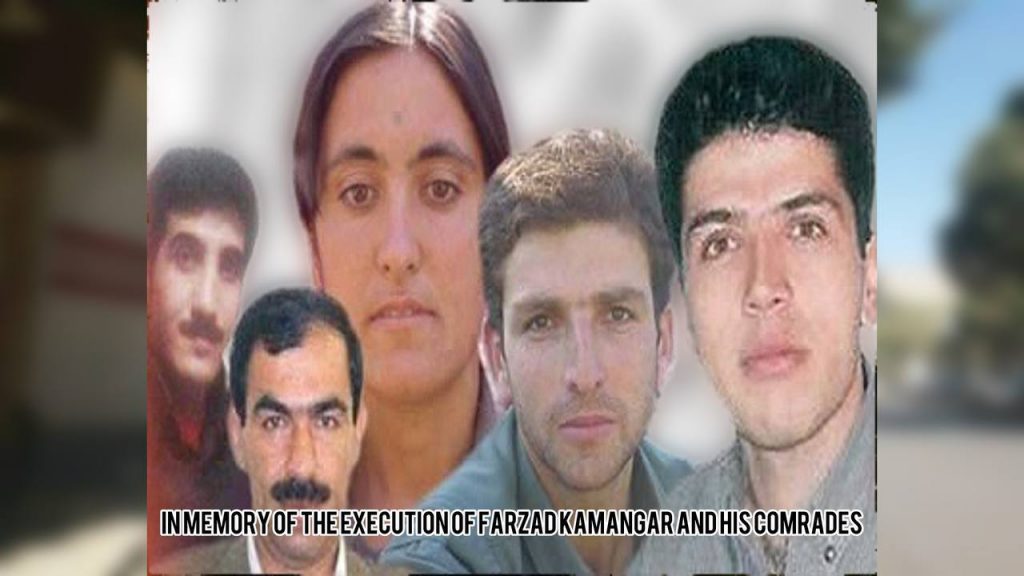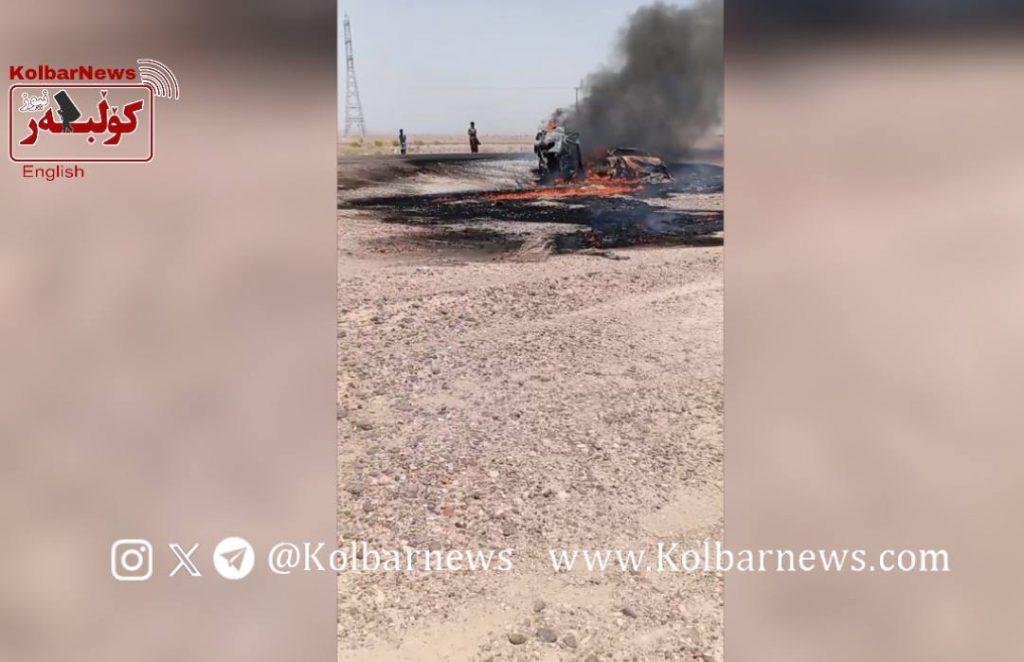
Today, Wednesday, May 8th, 2024, marks the fourteenth anniversary of the “criminal execution” of “Farzad Kamangar” and his associates: “Shirin Alam-Hooli”, “Farhad Vakili”, “Ali Heydarian”, and “Mehdi Eslamian”. Also, on Sunday, May 12, the fourteenth anniversary, a general strike in Kurdistan in response to this crime. The execution of the five young activists who fought against the Islamic regime until the last moment of their lives sparked coordinated action by millions of people in a general strike across Kurdistan.
The execution of these activists took place amidst a wave of protests both in Iran and internationally against their death sentences. Although the Islamic Republic disregarded these protests, the anger among the people of Kurdistan was palpable from the day of their execution, plunging the regime into fear. For this reason, the bodies of the deceased were never handed over to their families. Four days after these executions, the general strike of the Kurdish people in protest against this crime took shape. The regime mistakenly believed that the execution of the five political activists would instill fear in the population of Kurdistan and silence them. However, the general strike on May 12th, was the people of Kurdistan’s response to this flawed assumption. The call for a general strike on this day, supported by political parties and forces in Kurdistan and widely embraced by leftist and communist forces in Iran, led to a unified shutdown of Kurdistan. Workers in workshops and service and production centers went on strike, shopkeepers closed their businesses, government and private sector employees refrained from going to work, students and teachers suspended classes. Thus, a general solidarity formed in protest against the massacre of political prisoners in prison.
This mass movement demonstrated that the execution of Farzad Kamangar and his comrades not only failed to intimidate the people of Kurdistan but also strengthened their resolve to resist this regime and its oppressive policies. The political general strike on May 12th, disrupted all calculations of the regime. The slaughter of the five young political prisoners not only failed to intimidate the people of Kurdistan but also fueled their anger further. The people of Kurdistan knew that if there was a way to save the lives of their loved ones in prison, it would be through the same path. This strike was a resolute response by the people of Kurdistan to the Islamic Republic regime. This widespread, decisive, and timely action showed the regime that it had made a grave mistake in gauging the people’s reaction.
This experience once again showed that a political general strike is a form of protest in which slogans and policies are transformed into tangible material force through collective action, providing a way to erode the regime’s power and create the conditions for further steps. By employing the tactic of a general strike, the people of Kurdistan deprived the enemy’s oppressive forces of their ability to move and rendered their repressive actions ineffective, demonstrating to the freedom-loving people of Iran that such actions are possible.
In many instances, the people of Kurdistan have demonstrated their united power and resilience against the regime. From firmly rejecting the establishment of the Islamic Republic in the referendum of 1979 to the historic march of the people of Marivan and the rallies of other cities in support of them in the same year, to the glorious political general strikes in subsequent years and especially during the Jina Revolution, their reactions have been significant.
The revolutionary movement of the people of Kurdistan, alongside various forms of struggle and resistance, has also experienced valuable examples of political general strikes.
June 5th, 1982, the criminal execution of “Shwaneh Seyed Qaderi” in Mahabad on August 7th, 2005, and May 13th, 2010, September 13th, 2017 and several consecutive general strikes during the Jina revolution, have been important days in the history of the revolutionary movement of the people of Kurdistan. In these days, we have witnessed shining examples of the test of political general strikes in Kurdistan.
These strikes have shown that the retreat of the vanguard forces does not mean the end of the revolutionary movement of the people of Kurdistan. They have shown that despite this retreat, the roots of this movement have grown stronger within society. They have shown that this movement possesses resilience, vigilance, awareness, organization, and leadership. They have shown that the oppressed masses of Kurdistan, despite poverty and hardship, are willing to sacrifice their livelihoods and lives for victory over the Islamic regime. They have shown that Kurdistan society is a political society with a high capacity for organization. They have shown that a nationwide general strike can serve as a model and successful experience for struggles across Iran, where the regime’s repressive forces are defeated and neutralized against the collective will of the people.
On the fourteenth anniversary of the criminal execution of Farzad Kamangar and his comrades, and on the verge of the glorious and historic day of the general strike on May 12, we honor the memory of the martyrs, “Farzad Kamangar”, “Shirin Alam-Hooli”, “Farhad Vakili”, “Ali Heydarian”, and “Mehdi Eslamian”, who bravely resisted the enemy and sacrificed their lives for this cause, and we send our regards to the grateful people of Kurdistan, who honored the memory of their fallen heroes in such a magnificent way.

